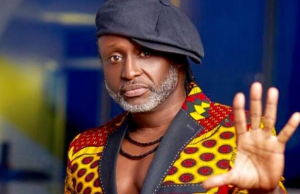The ECOWAS Community Court of Justice (CCJ) has dismissed a suit filed against the Government of Ghana over the controversial Agyapa deal.
Though the court is yet to give its full reasons for the decision, it dismissed all the reliefs sought by the plaintiffs against the government.
Transparency International, Ghana Integrity Initiative (GII) and the Ghana Anti-Corruption Coalition (GACC), had taken the matter of Agyapa deal to the ECOWAS Court questioning government’s move to collateralise the country’s gold without active engagement and consultation with Ghanaians.
The Agyapa Royalty deal was proposed by the government in 2020 to raise funds through mineral royalties for key infrastructure projects, but could not be passed by Parliament after stakeholders rejected the deal.
The Agyapa deal, which was about the monetisation of the country’s gold, met resistance from various strands of personalities who called for further consultation on the matter.
It was subsequently suspended by the government following a backlash from Ghanaians.
Prior to its suspension, Transparency International and others went to the ECOWAS Court seeking the court to restrain government and its officials from implementing the deal.
The plaintiffs filed an application at the ECOWAS Court for the enforcement of fundamental human rights under Article 33 of the Rules of the ECOWAS Court, Article 21(1) of the African Charter on Human and Peoples Rights, Article 2(1) and (2), 3(1), 16(1) and 17(3) of the Revised African Convention on the Conservation of Nature and Natural Resources.
They argue that the enactment of the Minerals Income Investment Fund (MIIF) Act and the proposed execution of a Relationship Agreement between Government of Ghana (GoG), MIIF, and Agyapa Royalties Limited amounts to an interference with the rights of Ghanaians to permanent sovereignty over natural resources as it would lead to a loss of about 75.6% of gold royalties in perpetuity.
They also contended that the deal would substantially deprive future generations of Ghanaians of their biggest asset, worth billions of dollars, in exchange for a potential $500 million equity share in a foreign SPV established in a known tax haven.
In support of their case, they cited a number of lack of transparency issues and value for money concerns highlighted by civil society organisations (CSOs) in Ghana and the Corruption Risk Assessment report by Ghana’s Office of the Special Prosecutor (OSP), including the involvement of politically exposed persons in the transaction.
Some of the reliefs sought by the plaintiffs include a declaration that the deal initiated by and entered into by GoG constitutes an interference with the rights of the people of Ghana under the African Charter on Human and Peoples Rights and the Revised African Convention on the Conservation of Nature and Natural Resources.
They also sought an order restraining GoG and its officials from implementing the Agyapa deal and terminating the already existing contracts.
Attorney General’s Response
The Office of the Attorney General, in its response, questioned the capacity of Transparency International to bring the suit before the ECOWAS Court.
The AG argued that Transparency International is not constituted under the laws of any member state of ECOWAS and, therefore, lacks capacity to institute the present suit.
The AG also contended that the Agyapa transaction does not interfere with the people’s right to permanent sovereignty, as argued by the plaintiffs.
According to the AG, the Government of Ghana headed by the President, is a trustee of natural resources and is constitutionally clothed with authority to ensure that natural resources are optimally used for the benefit of the people of Ghana; which is in line with the objects of the MIIF.
The AG also argued that the Agyapa deal is designed as a means by which only a fraction of mineral royalties due the state from the allocated mining companies would be efficiently invested to ensure that the people of Ghana obtain benefits.
The court, in its judgment given yesterday, dismissed the suit and is yet to give full reasons for its decision.
Source: Daily Guide
| Disclaimer: Opinions expressed here are those of the writers and do not reflect those of Peacefmonline.com. Peacefmonline.com accepts no responsibility legal or otherwise for their accuracy of content. Please report any inappropriate content to us, and we will evaluate it as a matter of priority. |
Featured Video

















